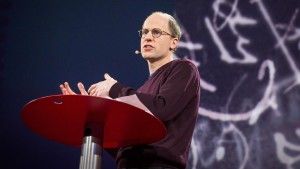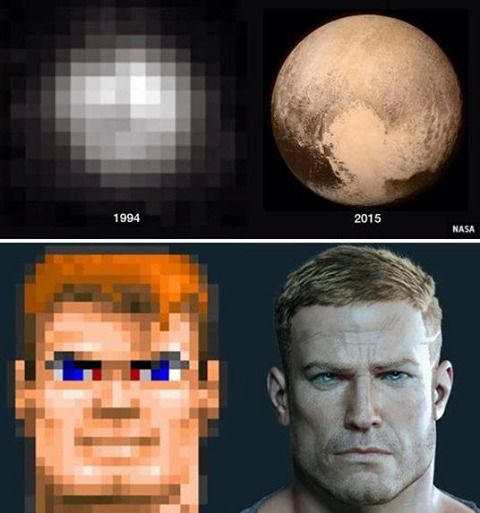Category: futurism

Can The Existential Risk Of Artificial Intelligence Be Mitigated?
It seems like every day we’re warned about a new, AI-related threat that could ultimately bring about the end of humanity. According to Author and Oxford Professor Nick Bostrom, those existential risks aren’t so black and white, and an individual’s ability to influence those risks might surprise you.
Image Credit: TEDBostrom defines an existential risk as one distinction of earth originating life or the permanent and drastic destruction of our future development, but he also notes that there is no single methodology that is applicable to all the different existential risks (as more technically elaborated upon in this Future of Humanity Institute study). Rather, he considers it an interdisciplinary endeavor.
“If you’re wondering about asteroids, we have telescopes, we can study them with, we can look at past crater impacts and derive hard statistical data on that,” he said. “We find that the risk of asteroids is extremely small and likewise for a few of the other risks that arrive from nature. But other really big existential risks are not in any direct way susceptible to this kind of rigorous quantification.”
In Bostrom’s eyes, the most significant risks we face arise from human activity and particularly the potential dangerous technological discoveries that await us in the future. Though he believes there’s no way to quantify the possibility of humanity being destroyed by a super-intelligent machine, a more important variable is human judgment. To improve assessment of existential risk, Bostrom said we should think carefully about how these judgments are produced and whether the biases that affect those judgments can be avoided.
“If your task is to hammer a nail into a board, reality will tell you if you’re doing it right or not. It doesn’t really matter if you’re a Communist or a Nazi or whatever crazy ideologies you have, you’ll learn quite quickly if you’re hammering the nail in wrong,” Bostrom said. “If you’re wrong about what the major threats are to humanity over the next century, there is not a reality click to tell you if you’re right or wrong. Any weak bias you might have might distort your belief.”
Noting that humanity doesn’t really have any policy designed to steer a particular course into the future, Bostrom said many existential risks arise from global coordination failures. While he believes society might one day evolve into a unified global government, the question of when this uniting occurs will hinge on individual contributions.
“Working toward global peace is the best project, just because it’s very difficult to make a big difference there if you’re a single individual or a small organization. Perhaps your resources would be better put to use if they were focused on some problem that is much more neglected, such as the control problem for artificial intelligence,” Bostrom said. “(For example) do the technical research to figure that, if we got the ability to create super intelligence, the outcome would be safe and beneficial. That’s where an extra million dollars in funding or one extra very talented person could make a noticeable difference… far more than doing general research on existential risks.”
Looking to the future, Bostrom feels there is an opportunity to show that we can do serious research to change global awareness of existential risks and bring them into a wider conversation. While that research doesn’t assume the human condition is fixed, there is a growing ecosystem of people who are genuinely trying to figure out how to save the future, he said. As an example of how much influence one can have in reducing existential risk, Bostrom noted that a lot more people in history have believed they were Napoleon, yet there was actually only one Napoleon.
“You don’t have to try to do it yourself… it’s usually more efficient to each do whatever we specialize in. For most people, the most efficient way to contribute to eliminating existential risk would be to identify the most efficient organizations working on this and then support those,” Bostrom said. “The values on the line in terms of how many happy lives could exist in humanity’s future, even a very small probability of impact in that, would probably be worthwhile in pursuing”.

Largest destroyer built for Navy headed to sea for testing
BATH, Maine (AP) — The largest destroyer ever built for the U.S. Navy headed out to sea for the first time Monday, departing from shipbuilder Bath Iron Works and carefully navigating the winding Kennebec River before reaching the open ocean where the ship will undergo sea trials.
More than 200 shipbuilders, sailors and residents gathered to watch as the futuristic 600-foot, 15,000-ton USS Zumwalt glided past Fort Popham, accompanied by tugboats.
Kelley Campana, a Bath Iron Works employee, said she had goose bumps and tears in her eyes.

Life in the Robot Age: When We’re All Unemployed
“You’ll never get a good job, son, if you’re smoking pot all the time!”
That’s a scolding you won’t hear in the future. Besides the fact that pot smokers can become president, the future will not require you to get a good job. The traditional motivation to keep your mind orderly and bourgeois will be gone, so let your mind fly its freak flag and wander the Technicolor pathways already cleared by St. John of Patmos, Salvador Dali, and Carl Sagan.
In the near future, we may all be unemployed. We are entering what is generally called the “second machine age.” And, optimistically speaking, it may become the best thing that ever happened to the human being.


Iron Man Hulkbuster costume at New York’s Comic Con
Also you should watch Giant Fully-Mechanized Hulkbuster Toy Has a Full Iron Man Inside SDCC 2015 http://goo.gl/4KLlP1
Video courtesy Tech Insider.


This Short Movie About An Endless Future War Looks Unspeakably Great
Check out the trailer for The Shaman, a new short film debuting at the Tribeca Film Festival. As with a lot of short films we’ve seen lately, this has top-notch visual effects — but more than that, it looks like a thing of pure beauty. And it has an original story, with a concept I haven’t come across before.
Basically, in The Shaman, it’s 2204, and the world has been at war for 73 years. And the main character isn’t a soldier — he’s a Shaman, one of a group of people who used to be healers. But now, instead, he uses his supernatural powers to “heal” the souls of the enemy, basically helping them cross over into the afterlife. That’s what I get from the trailer, in any case. This is the work of writer/director Marco Kalantari (Ainoa).
Here’s a complete synopsis, via Indiewire’s The Playlist, which also premiered the trailer: